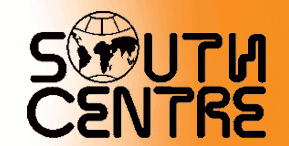 The South Centre has released a new policy brief on the state of the implementation of the Doha Declaration on TRIPS and Public Health. It hails the Doha Declaration as a “landmark achievement for clarifying the relationship between IP and public health,” but notes that there have been difficulties implementing the TRIPS flexibilities that it upholds: “Some developing countries are increasingly making use of TRIPS flexibilities for public health purposes, but many still need to adopt the appropriate laws and regulations and to ensure that patent offices act as stewards of the public interest. They also need to more effectively resist demands of TRIPS-Plus obligations in exchange for trade or other concessions.”
The South Centre has released a new policy brief on the state of the implementation of the Doha Declaration on TRIPS and Public Health. It hails the Doha Declaration as a “landmark achievement for clarifying the relationship between IP and public health,” but notes that there have been difficulties implementing the TRIPS flexibilities that it upholds: “Some developing countries are increasingly making use of TRIPS flexibilities for public health purposes, but many still need to adopt the appropriate laws and regulations and to ensure that patent offices act as stewards of the public interest. They also need to more effectively resist demands of TRIPS-Plus obligations in exchange for trade or other concessions.”
The paper also identifies four problems in using the WTO’s “Paragraph 6” system for the export of pharmaceuticals produced under compulsory license (to date, the system has only been used once):
- The required prior negotiation for a voluntary license from the patent owner “may be protracted and complex,” discouraging generic manufacturers from using the system
- The system involves a complicated series of procedural steps involving forecasting demand, negotiating with patent holders, applying for compulsory licenses in the country of manufacture and (if applicable) the country of import, and notification of the WTO. It also “places conditions on commercialization of products made under the compulsory license.”
- “The Paragraph 6 system requires a drug-by-drug, country-by-country, and case-by-case decision-making process.”
- There are ample opportunities for patent holders to undermine the system.




